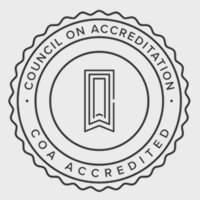Written by Kathryn Stack, MA, LMSW. Kathryn is a therapist at Tanager Place’s Mental Wellbeing Clinic in Cedar Rapids and Coralville.

Facebook whistleblower Frances Haugen recently confirmed that the company’s own research demonstrates the social media platform Instagram, a subsidiary of Facebook, is detrimental to the mental health of young people, particularly teen girls.
These findings confirm what mental health professionals and researchers have long suspected. According to internal studies, Facebook found that 13.5% of girls say that Instagram makes thoughts of suicide worse, and 17% of girls say Instagram makes eating disorders worse. It’s clear that although teens recognize social media can be harmful, they may not have the self-regulation to avoid it. Further, Haugen alleges that these findings did not impact Facebook’s policies. She testified that despite concerns, the company has chosen to prioritize growth and user engagement, while ignoring its more negative impact on users.
As a mental health provider, I have spoken with many exasperated parents about how to supervise, monitor or prohibit teens from engaging with detrimental content on social media. Some parents purchase “parental control” apps in an attempt to monitor their teen’s online activity. Others simply ban devices or accounts outright. Many take a don’t-ask-don’t-tell approach, hoping that their children will manage to make it through the social media age unscathed.
While social media has its downside, it is an undeniable cornerstone of our current culture. Yes, it can be harmful, but it has also allowed people to feel connected during a pandemic, to share art and stories, and to learn about perspectives outside their own. Social media appears to be here to stay, there are many things we can do to minimize the potential harm these sites may cause to young people.
First, parents can educate themselves on internet safety and media literacy. It’s important to understand how ads, algorithms and the illusion on anonymity operate in online spaces. It does not eliminate risk, but it can help all of us engage in these platforms in a safer, more intentional manner. Have conversations with your teen about how to analyze media and be open about your own struggles regulating your consumption of it.
Second, parents and guardians should feel empowered to have conversations about mental health with their teens. By fostering a safe, nonjudgmental home environment, parents can increase the likelihood that their teens will be willing to reach out for help. Additionally, parents can look for common warning signs of psychological distress, and can connect with licensed professionals for further assessment.
Third, concerned voters should demand that corporations take a more proactive role in safe guarding online content and being transparent about user engagement strategies. In her testimony before Congress, Haugen discussed the potential of reforming Section 230 – an internet law that shields tech companies from being sued for most types of illegal content posted on their platforms – but with a focus on addressing algorithms. She proposed that the companies should be legally liable when their algorithms promote harmful content. While this would not eliminate the risk of mental health-damaging content, it would make Facebook responsible for ensuring that the most damaging material is not constantly at the top of young user’s feed or discovery pages.
Today’s generation will inevitably face challenges related to mental health and technology that their parents and guardians are ill-equipped to predict or prevent, but by having hard conversations about media consumption and mental health, and by holding our elected officials equally responsible for finding solutions, we can be proactive in minimizing the damage.
Copyright (2021)


